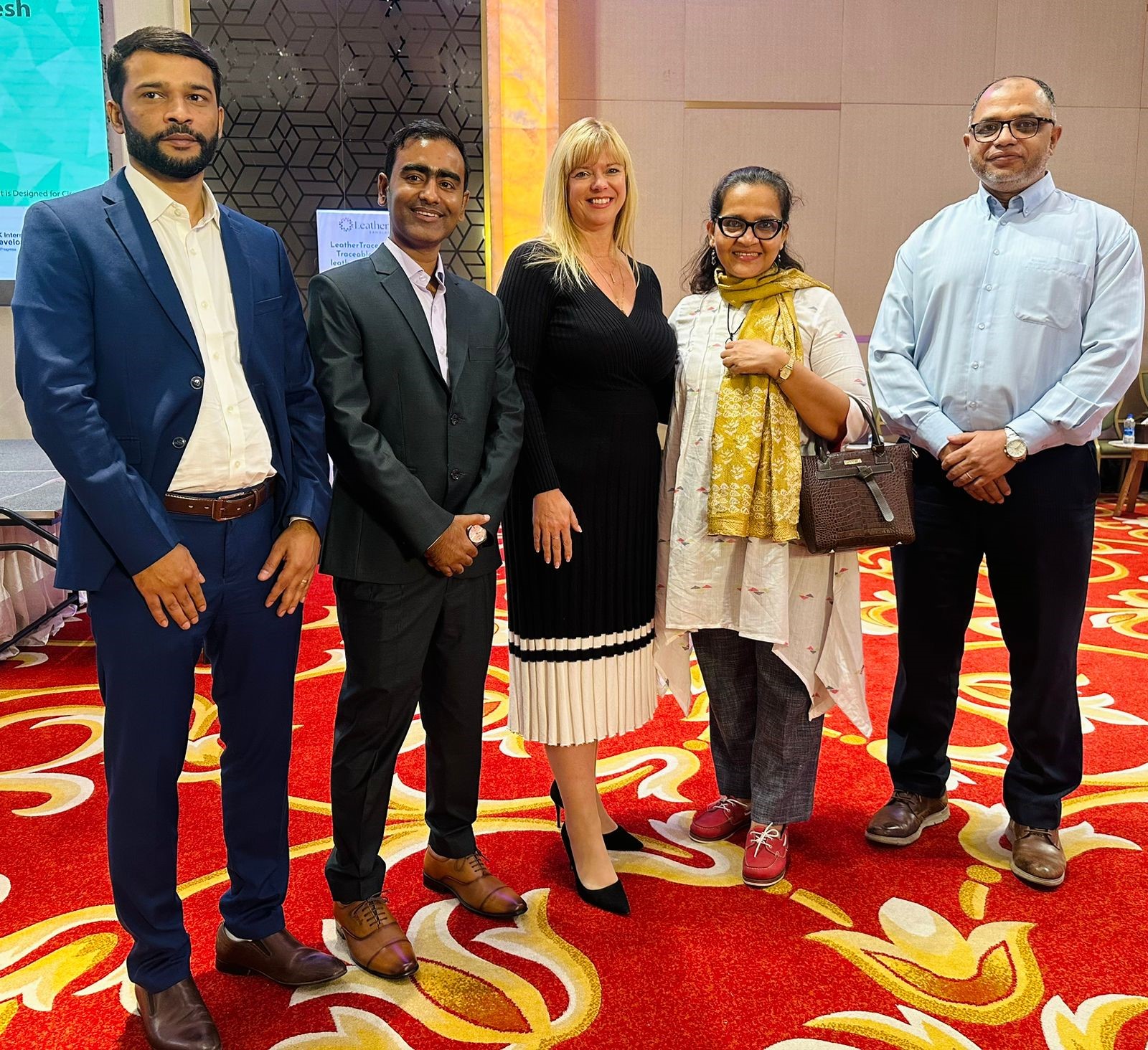Date: 2024-11-19
On the evening of November 14, 2024, the Dhaka Sheraton Hotel will host a landmark event that promises to redefine the standards of the leather industry in Bangladesh. Titled "LeatherTrace Bangladesh: Traceable and Circular Leather Production (TCLP)," this initiative is a collaborative effort by a prestigious consortium including the University of Northampton, iDEA TREE, SERA Bangladesh, in association with the University of Hertfordshire and the Sustainable Leather Foundation (SLF). The workshop is set to introduce pivotal advancements in the leather production sector, supported by the Sustainable Manufacturing and Environmental Pollution Programme (SMEP), with funding and technical assistance from UK International Development (UK ID) and the United Nations Conference on Trade and Development (UNCTAD).The event was graced by the Chief Guest, Mr. Ashraf Uddin Ahmed Khan, Additional Secretary & Chairman of the Bangladesh Small and Cottage Industries Corporation (BSCIC).

This inaugural workshop is a critical step in the TCLP project, which aims to elevate the global standing of Bangladesh's leather industry by enhancing traceability, sustainability, and compliance with international standards. The project focuses on implementing e-traceability across the supply chain and adopting sustainable production practices to meet the high standards of environmental and social responsibilities. Such initiatives are expected to significantly increase the sector's global business profile. Dr. Mohammad Sarwar Morshed, Director of IQAC and Professor of the Mechanical and Production Engineering Department at Ahsanullah University of Science and Technology, presented his insights at the workshop. Joining him were notable industry figures such as Mr. Ibnul Wara, Managing Director of Austan Limited; Deborah Taylor, Managing Director of Sustainable Leather Foundation, UK; Mr. Mizanur Rahman, Chief Operating Officer of SERA Bangladesh, and Md. Kauser Ali, Head of Operation at iDEA TREE. highlighting the significant governmental support for the initiative.
The TCLP project is more than just a technical upgrade of the supply chain; it is a strategic move towards a more responsible and sustainable industrial practice that aligns with global environmental standards. By focusing on traceability and sustainability, Bangladesh’s leather industry is not only aiming to enhance its operational efficiency but also its international marketability, paving the way for a more sustainable and profitable future. This workshop marks the beginning of a transformative journey for the leather industry in Bangladesh, setting a precedent for others to follow.